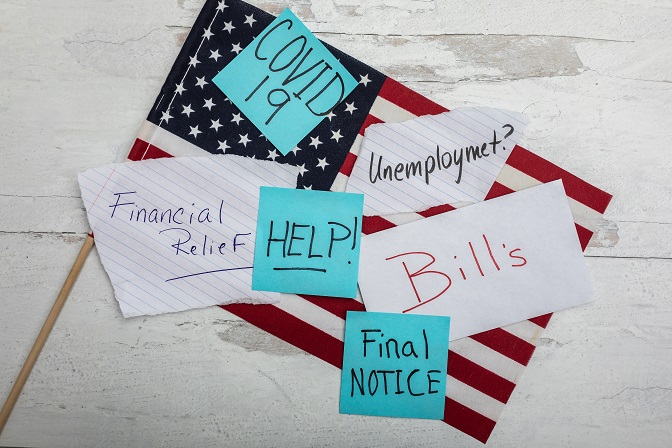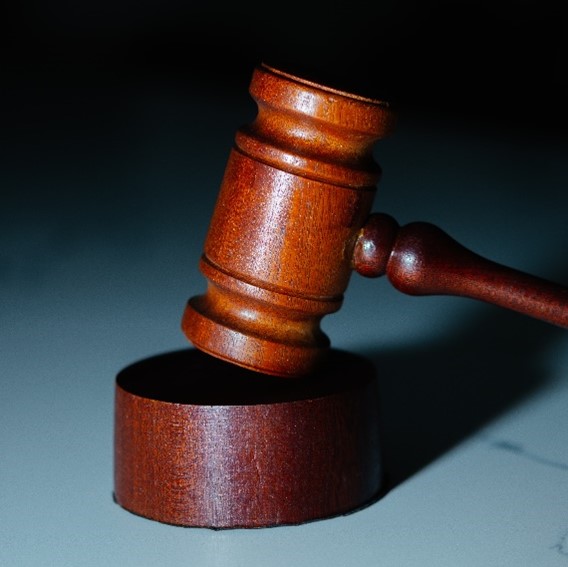The Changing Face of Covid Unemployment Compensation
Unemployment Compensation during COVID-19
January 30, 2022
Alexa Whistleblower Exposes Danger of Uncovering Corruption in China
February 3, 2022In the early days of the coronavirus pandemic in March of 2020, a tidal wave of business closings led to massive job losses and a subsequent jump in unemployment claims. Some online systems even crashed with the flood of new applicants. Nearly two years later, most of the delays have been ironed out, but confusion still remains as some workers with jobless benefits were overpaid while others aren’t sure if they’re still eligible for pandemic assistance.
Global Pandemic Results in Surge of Unemployment Claims
As Covid gripped the nation and caused statewide shutdowns, many Americans turned to unemployment insurance for a lifeline. Indeed, the travel, hospitality, and retail sectors were especially hard hit due to lockdowns and business closures. Within a matter of days, some states such as Pennsylvania received over half as many claims as they had reported for the whole first quarter of 2019.
New Jersey’s online system for filing unemployment claims crashed after a record 15,000 people submitted applications. In contrast, a typical day for their labor department involves 1,500 to 2,300 applications.
Essentially, the pandemic pushed the entire system into uncharted territory. Americans had never before faced this kind of crisis and its potential for greater job losses down the line.
To add insult to injury, some states were just balancing their books from debts incurred during the financial crisis a few years back. In January, for instance, Pennsylvania finally paid off the last of $2.8 billion in bonds it issued in 2012 to retire post-recession unemployment compensation debt that businesses still owed to the federal government.
People Receiving Unemployment Benefits in 2021 Won’t Get Same Tax Break as 2020
Due to Covid, the unemployment rate in 2020 ballooned to its highest level since the Great Depression, with nearly 40 million people receiving benefits. Yet no more than 40% of recipients had taxes withheld. Luckily for these individuals, the American Rescue Plan Act, passed in March of 2021, waived federal tax on up to $10,200 of benefits per person for tax year 2020. Additionally, many states offered their own assistance.
Nevertheless, Congress did not enact a similar tax break for 2021. Therefore, the 25 million who claimed unemployment benefits won’t get the same kind of relief come tax time this April. Consequently, families that didn’t withhold enough federal tax from their weekly benefit payments may wind up with a large tax bill or a much smaller refund.
Fortunately, the economy and the job market bounced back, and unemployment claims retreated back to pre-pandemic levels by December of 2021. Although there are still approximately 4 million fewer jobs than there were in early 2020, the national unemployment rate dropped to its lowest level since February 2020. None of these statistics, however, will change things for those who spent their unemployment checks last year without accounting for their federal tax bill.
NJ Asks Congress to Forgive Employment Benefit Overpayments
To add to the confusion, New Jersey is now in the position of asking Congress to forgive unemployment benefits to over 130,000 residents who were overpaid during the Covid pandemic. Moreover, state labor officials maintain that this error could affect up to 250,000 people. The problem stems from people receiving unemployment compensation after their eligibility expired due to subsequent federal rules changes.
In this case, compensation was available to many people who are usually not eligible such as freelance workers and the self-employed. After the initial round of federal relief in March 2020, the rules for eligibility gradually changed. New Jersey officials charge that it will be difficult to recover these funds, and that the cost to do so outweighs any monetary returns. Indeed, employment lawyers are already staying busy with employment disputes related to Covid.
As a result, officials are petitioning Congress to allow residents to keep those payments unless they were fraudulent. They claim that it would be unfair to ask for the money back since the rules change came months after recipients had already spent the money.
Pandemic Unemployment Assistance Still Available for Some Individuals in 2022
The CARES Act relief law also offered jobless aid to individuals who couldn’t work because they were stricken with Covid. Yet this program expired on Labor Day of 2020. However, people who must isolate and miss work on account of a possible Covid exposure may still be eligible for unemployment benefits in 2022. They’re technically able and available to work and therefore, may qualify for compensation depending on state law. Law firms in states such as New Jersey have had their work cut out for them clarifying who qualifies for Covid paid sick leave and who does not.
Regardless of one’s current employment situation, navigating through state unemployment laws and the ensuing changes during coronavirus shutdowns has posed more than its fair share of difficulties. While the federal government sprung to action to help those adversely affected at the outset of the pandemic, it also changed the rules regarding unemployment compensation without much notice. Consequently, many people were left in limbo, unsure of how to proceed and whether they’d be liable for returning payments to which they were no longer entitled. Hopefully, these problems will be resolved in favor of the recipients, all of whom are still dealing with a catastrophic public health crisis that has yet to subside.


